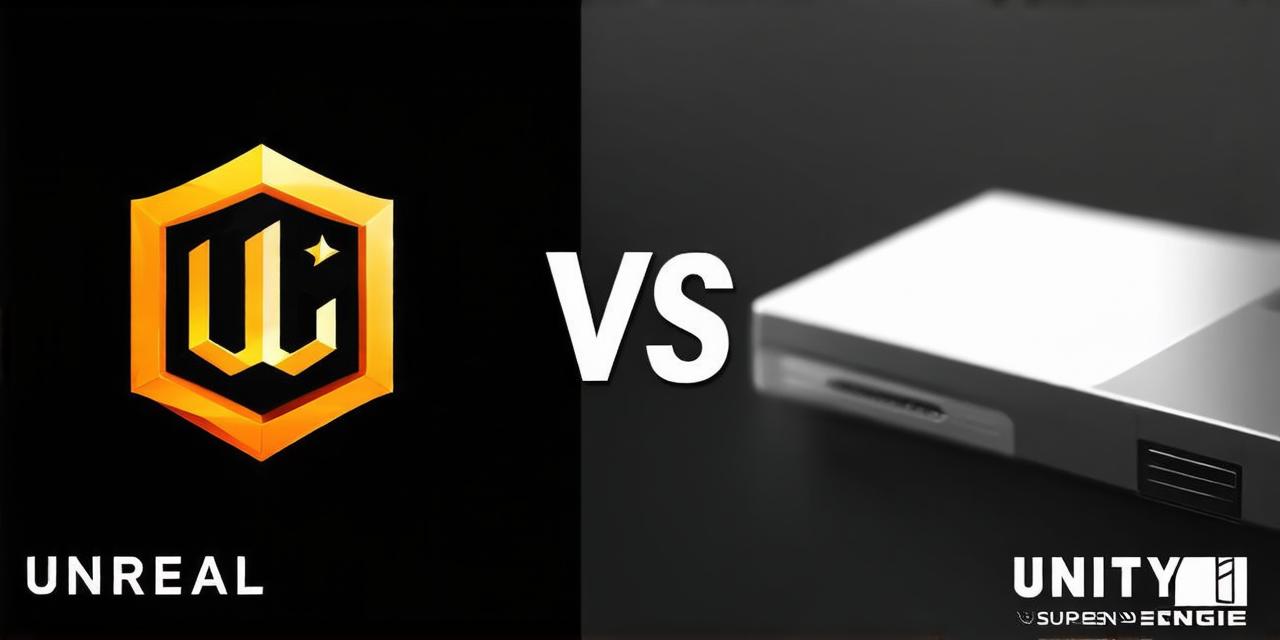
Introduction
Unreal Engine and Unity are both powerful game engines that have been used to create some of the most successful games in recent years. Both engines offer advanced features and tools for developers, but there are some key differences between them that you should be aware of before making a decision. In this article, we will compare the two engines based on several factors such as performance, graphics, development speed, and community support.
Performance
One of the most important factors to consider when choosing a game engine is performance. Both engines have their own unique features that can affect performance, but there are some clear differences between them. Unreal Engine has been known for its superior performance compared to Unity, thanks in large part to its proprietary rendering system called Blueprint Rendering. This system is optimized for real-time rendering and provides better performance than the older APIs supported by Unity. Additionally, Unreal Engine supports DirectX 12 and Vulkan, which provide even better graphics and performance compared to DirectX 11 and OpenGL, respectively.
On the other hand, Unity has a simpler rendering system that may be easier to use for beginners, but lacks some of the advanced features of Unreal Engine’s Blueprint Rendering system. While Unity does support DirectX 12 and Vulkan, it is not as optimized for these APIs as Unreal Engine, which can result in slower performance on high-end systems.
Graphics
Another important factor to consider when choosing a game engine is graphics. Both engines have advanced features for creating stunning visuals, but there are some key differences between them. Unreal Engine has a more advanced lighting system that allows for more detailed and realistic lighting effects. It also supports physically-based rendering (PBR), which provides more accurate reflections and shadows in the game world. PBR is a powerful tool that can greatly enhance the visual realism of a game, making it an important factor to consider when choosing between Unreal Engine and Unity.
Unity has a simpler lighting system that may be easier to use for beginners, but lacks some of the advanced features of Unreal Engine’s PBR system. While Unity does support PBR, it is not as optimized for this feature as Unreal Engine, which can result in less realistic lighting effects and shadows.
Development Speed
Development speed is also an important factor to consider when choosing a game engine. Both engines have their own development tools and workflows, but there are some key differences between them. Unreal Engine has a more complex setup process and steeper learning curve compared to Unity, but once developers are familiar with the engine, it provides faster development times due to its advanced features and tools.
For example, Unreal Engine has a powerful scripting language called Blueprints, which allows developers to create game logic without writing any code. This can greatly speed up development for beginners or non-programmers who want to create simple game mechanics. Additionally, Unreal Engine has a large number of plugins and extensions available that can help developers automate repetitive tasks and streamline their workflow.
Unity, on the other hand, has a simpler setup process and is generally considered easier to use for beginners. It also has a more intuitive development interface that makes it easier to create game logic and manage assets. However, Unity’s development speed may be slower than Unreal Engine’s due to its smaller number of advanced features and tools.
Community Support
Finally, community support is an important factor to consider when choosing a game engine. Both engines have large communities of developers who use them to create games, but there are some key differences between them. Unreal Engine has a more active and engaged community than Unity, with many forums, tutorials, and other resources available for developers to learn from each other and share their work.
Unreal Engine also has a larger number of professional developers working with the engine, which can lead to more advanced features and tools being developed over time. This can be especially important for large-scale projects that require powerful graphics or complex game mechanics.
Unity’s community is still quite active, but it may not be as engaged or as large as Unreal Engine’s. However, Unity does have a strong focus on simplicity and ease of use, which can make it an attractive option for beginners who want to create simple games without getting bogged down in complex development tools and workflows.
Summary
Ultimately, the choice between Unreal Engine and Unity will depend on your specific project requirements and goals. If you need advanced graphics or powerful game mechanics, Unreal Engine may be the better option due to its superior performance and more advanced features. However, if you want a simpler development process and are just starting out in game development, Unity may be a good choice due to its ease of use and simplicity.
Regardless of which engine you choose, both have powerful development tools and workflows that can help you create stunning games with minimal coding or scripting knowledge. With the right approach and mindset, anyone can create a successful game using one of these powerful engines.
